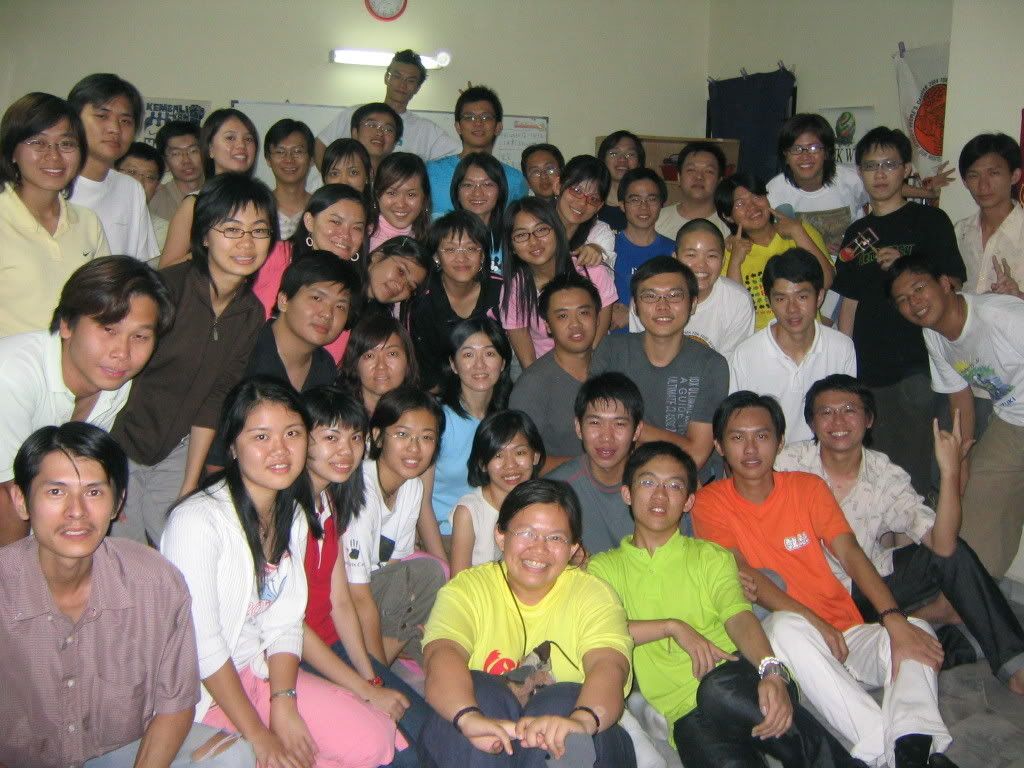Just before Semah Ah Yin's great-grandfather Atok Mawai died, he asked that his body to be left by a nearby waterfall so it could to be carried away by a flood to his next life.
The waterfall and river in northern Perak state, where he performed ritualistic ceremonies, became a sacred site for the indigenous Semai people living in nearby Kampung Chang village.
It marks the boundary of lushly-forested ancestral land held by the Semai for generations - and which the state government is now eyeing for development.The battle for the Semai's cherished forests is just one of many cases being fought by peninsular Malaysia's indigenous Orang Asli to retain control over their traditional lands.
With 18 ethnic sub-groups, the Orang Asli number only 150,000 or 0.6 percent of Malaysia's population of almost 27 million people.
They are among the country's poorest citizens, most making their living from agriculture and fishing.
As development pressures in Malaysia increase, Orang Asli are being squeezed in land grabs by state governments.
Unwanted botanical garden
Earlier this year, Kampung Chang villagers fought off a bid by Perak to use part of their land for a 200-hectare botanical park, a project they say would only line the pockets of contractors and the government.
"Other people will benefit from this park, but not the village people," said Kampung Chang elder Nunek Kamin, 71.
Without warning, bulldozers appeared in February to tear down trees and make way for a carpark. They cleared a road of red earth before public exposure of the project and lobbying by the Semai led to a temporary stand-down.
Crouching by the rushing waters of the waterfall, Semah, 51, said the area is still considered sacred because her great-grandfather, a shaman of some renown in the area, used to perform ceremonies there.
Rizuan Tempek, 28, a local community activist, said the Orang Asli fear that even if the botanical garden development is defeated, something else will come.
"We're really worried about that," Rizuan said.
Orang Asli can use ancestral land as well as the timber and other resources on it. However, state governments say they have legal ownership and insist they need not pay compensation for claiming it.
"Orang Asli lands are the cheapest. And of course they are the last frontier, the last nice areas around," said Colin Nicholas, coordinator for the Centre for Orang Asli Concerns, which champions their interests.
Historic ruling
Indigenous people have been resettled to make way for highways, buildings, golf courses and plantations. State governments give them smaller farming lands and houses in return.The president of the Malaysian Bar Council, Ambiga Sreenevasan, said: "People are just walking in and doing what they like" because the Orang Asli do not have land titles.
But a growing number of villages are now resorting to legal action in a bid to stop encroachment on native customary land.
Thirteen cases are currently being heard by courts in peninsular Malaysia or are being prepared, said Nicholas, who is helping with them.
In eastern Malaysia on Borneo island, the states of Sarawak and Sabah recognise native customary rights but are flouting them, he said, adding that dozens of land rights cases are being fought there.
"It's the last resort, because they have protested, they have spoken to the authorities, negotiated, dialogued," he said.
In an historic ruling in 2002, a court found that members of the Temuan tribe were unlawfully evicted from their ancestral land in central Selangor state to make way for a highway to the Kuala Lumpur International Airport.
The court ordered compensation payments but the government and other parties have appealed to the Federal Court, the nation's highest.
With its ruling expected later this year, the Federal Court will determine native land rights once and for all, mirroring similar decisions in Australia and Canada, said Cyrus Das, a lawyer who represents the Temuan.
"This is a test case on whether the interests of the Orang Asli over customary land is merely a right of usage of the land or if it also includes a proprietary interest in the land," said Das.
Sustainable development
Land disputes are battles for resources but also an attempt by Orang Asli to retain their identities, which are intimately tied to their land, as Malaysia tries to integrate them into broader society and argues they must move with the times."We want the Orang Asli to be part of Malaysia. We don't want them to be a minority group," said an official from the Department of Orang Asli Affairs.
But Orang Asli and activists argue the fates of indigenous communities are being dictated by the government, while encroachment and resettlement are threatening their culture.
Orang Asli say they are not against progress but they want to be consulted, and they want sustainable development.
Rizuan, of Kampung Chang, said Orang Asli want to directly benefit from development and business projects on their land, whose profits are usually absorbed by middlemen.
Communities also want to be trained to control their own projects such as palm oil plantations, he said.
"It's not that we are stupid and can't learn," he said. "We are not fighting development. We are just fighting and struggling so that the government knows what kind of development we want."


